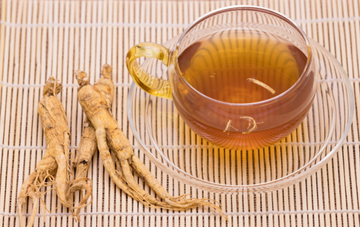
Adaptogens; How herbs and mushrooms can heal you…
There are many facets to the art of resilience- and I endeavour to cover with you one of them throughout this blog: Adaptogens. One of the integral parts of well-being is resilience; in a mental, emotional and physical capacity. We, as humans, are astoundingly resilient when it comes to our ability to bounce back from stressors.
Many of us know that eating and drinking the right things, exercising and getting enough sleep contributes to maintaining balance and resilience in our day to day lives. However, despite our best efforts, time and circumstances shift. This means that something may arise, with the potential to knock us off balance. The pandemic was a prime example of that!
Thankfully, we can find a source of comfort from within the plant and fungi kingdoms. These secret weapons are referred to as Adaptogens (a phrase coined by Nikolai Lazarev in 1947) and they are able to support us through stressful periods.
What constitutes an adaptogen?
- Safe for consumption
- Able to boost our ability to acclimatise to stressful situations
- Supports our health holistically, i.e. help the whole body/mind achieve a state of balance.
How do adaptogens work?
According to Ethnobotanist James Duke PhD, plants have to contend with many stressors themselves. As a result, they developed this adaptogenic ability to survive. Dr Duke’s theory is supported by the fact that many of the most effective adaptogens come from harsh environments.
We don’t know how adaptogens work physiologically – but research shows that they bring about balance by impacting the following;
- Stress hormone production and adrenal function
- Neurotransmitter production and deployment
- Inflammatory response
- Energy levels and blood sugar metabolism
The most powerful adaptogens:
Always check the Latin botanical name to ensure you identify the correct plant species. It is important to note that there is much confusion among the Ginsengs.
Asian Ginseng (Panax ginseng)
Ginseng is one of the most popular herbal remedies with a 5,000-year history of use. Ginseng’s botanical name “Panax” means “cure-all,” and it can help to improve our depression, exhaustion, cognitive performance, sleep, energy, sexual function, and immunity. However, for those who suffer from insomnia and anxiety, Ginseng may worsen symptoms. This is due to its potent stimulation properties. If you are prone to experiencing those symptoms, a less stimulating alternative to consider is ‘American ginseng’.
American Ginseng (Panax quinquefolius)
Used by several Native American tribes, such as the Cherokee and Iroquois, American Ginseng served as a healing tonic. It also has a proven ability to enhance cognitive function. American Ginseng can also be an effective form of anxiety relief for some people, due to the fact that it is less stimulating
Siberian Ginseng – AKA Eleuthero (Eleutherococcus senticosus)
In China, for over 2,000 years, Siberian Ginseng has been used as a general health tonic for stamina and respiratory conditions. Its benefits are similar to those of Asian Ginseng, though it has different active components. A favourite of Russian athletes, Asian Ginseng is used for physically demanding situations. Olympians rely on it as a natural way to enhance performance and aid recovery after training.
Ashwagandha (Withania somnifera)
Ashwagandha translates to “smell of the horse” and it is one of the most important herbs in Ayurvedic medicine. Those who use it have also said that it can ‘bestow the strength and stamina of a horse’. Whilst all adaptogens reduce stress, Ashwagandha excels in this area. Experts have also said that the herb is able to reduce stress and anxiety by up to 44 percent while decreasing the stress hormone cortisol by 28 percent. Studies show it can significantly improve Anxiety, Depression, and Insomnia, and increase productivity.
Arctic Root (Rhodiola Rosea)
Arctic root hails from cold northern regions of the world and has played an important role in traditional Scandinavian and Chinese medicine. The Vikings also used the root to increase physical and mental stamina. Many say that it is unparalleled for overcoming fatigue and exhaustion caused by prolonged stressful situations. It can also help with depression by transporting serotonin precursors into the brain and minimising the side effects of caffeine withdrawal.
Reishi AKA Ling Zhi (Ganoderma lucidum)
Last but not least is the ‘Queen of Mushrooms’ Reishi. Due to its potent effects on the mind and body, Reishi is one of the most frequently used medicinal mushrooms. It helps balance the hormonal system, reduces cortisol levels and sleeps quality and quantity. Finally, it is also rich in antioxidants, anti-inflammatories and can also help lower blood sugar in Diabetics.
I hope you have found this blog both interesting and informative! For more exclusive advice, visit my website, or reach out on one of my platforms. I adore hearing from you.
All my love,
Jayney




A timely reminder for me to get out that pot of Siberian Ginseng tablets to use on those mornings when I find it hard to get going! Thanks Jayney.